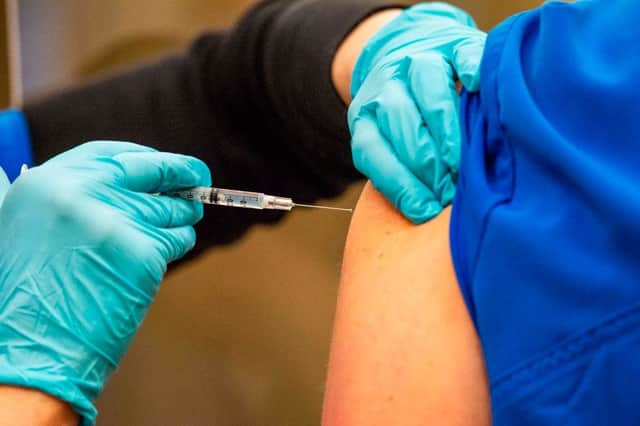This is how long you have to wait between the first and second dose of the Covid vaccine - and why there's a gap


As infection rates and hospital admissions continue to rise, the UK's health officials have decided to change tact on its rollout of Covid vaccines.
Both the approved Oxford / AstraZeneca and Pfizer / BioNtech vaccines require two doses, which were initially to be administered three weeks apart.
Advertisement
Hide AdAdvertisement
Hide AdBut the UK's decision makers have opted to delay giving the second dose of both vaccines, causing concern and confusion for many.
So what's the reasoning behind it?
What's the gap between the first and second vaccine dose?
Following the UK's approval of the Pfizer vaccine on 2 December, the initial plan was to give priority groups a second dose three weeks after the individual received their first.
Yet increasing infection rates, hospital admissions and new variants of the virus - including a more transmissible strain from South Africa - has prompted a change in thinking.
The Joint Committee on Vaccination and Immunisation (JCVI), an independent expert advisory committee, worked out that more people could get a first dose of the vaccine if the UK were to delay the administering of the second of up to 12 weeks.
Advertisement
Hide AdAdvertisement
Hide AdIt is hoped that more doses of vaccines will be available by then, while also offering more vulnerable people protection against the deadly virus.
Why is a second dose needed?
The second jab, which will now be administered within 12 weeks of the first, acts as a booster to strengthen the immune response and increase the length of protection.
The first Pfizer jab provides 91 percent protection against Covid, according to professor David Salisbury, who was in charge of immunisation at the Department of Health until 2013.
He said: “If you look at the New Englan
